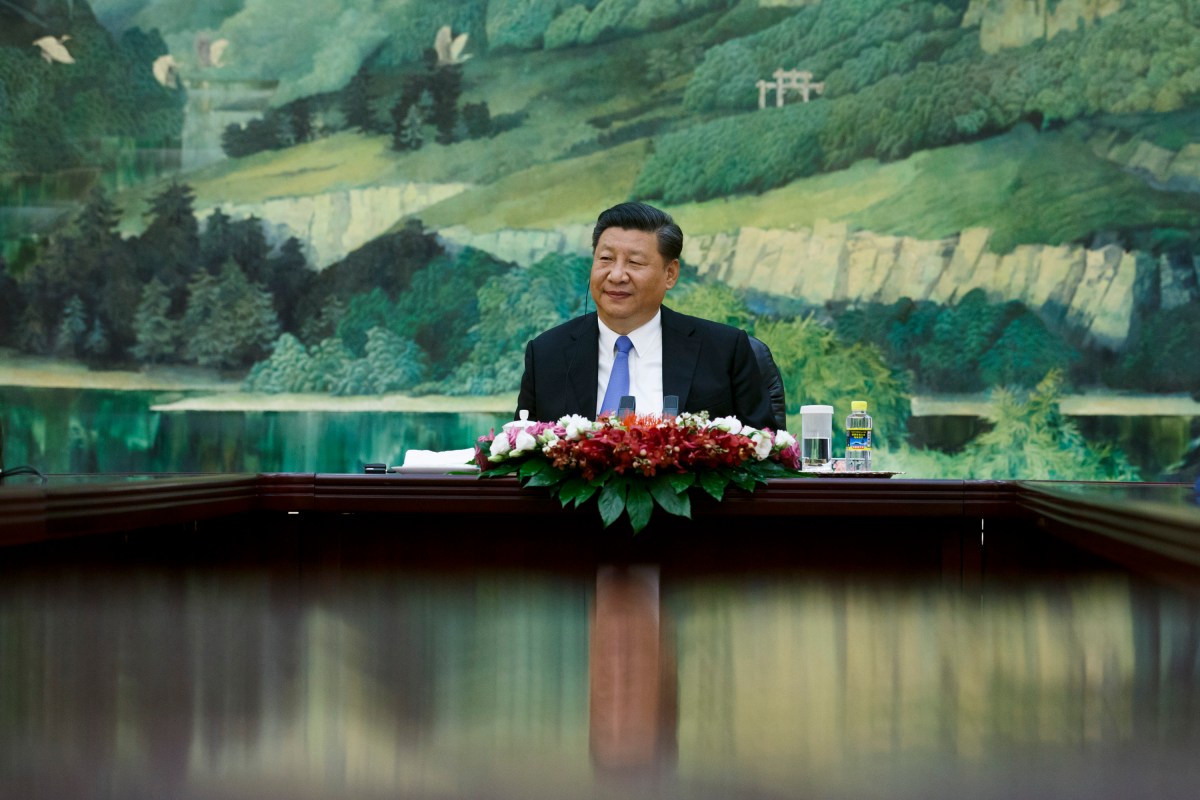Quick, what do the North Korean nuclear talks have to do with water wells?
Did you say: an old Chinese proverb about wells helps explain the Chinese government’s position on the delicate talks between President Trump and North Korean leader Kim Jong Un? Wow, I’m really impressed you got that on the first try.
The full proverb is, “[A] well begun is half done.” And then there’s another one that’s a bit more confusing: “When earth piles up into mountains, wind and rain will originate thereof.”
Both proverbs were cited by Hua Chunying, a spokesperson for the Chinese foreign ministry, last month in a press briefing as a means of saying that the Chinese government was supportive of the potential negotiations, even if it understood there’s plenty of work to do. “We lend positive support and remain open to all the efforts that are conducive to resolving the Korean Peninsula issue peacefully through dialogue and negotiation, and stand ready to continue with our positive and constructive role to this end,” Hua added, in the more stilted, mechanical words of diplomat-ese.
It was hardly the first time a Chinese diplomat has dropped a dollop of old-fashioned wisdom into otherwise mundane remarks to help drive a point home in colorful fashion. Below are a few more examples from Chinese foreign ministry briefings or diplomats’ statements, as translated into English by the Chinese government on the foreign ministry website.
‘If One Suspects His Neighbor of Stealing His Ax…’
In late March Hua was asked about U.S. House Intelligence Committee Chairman Devin Nunes and his announcement that the committee was going to investigate China’s power push in Africa and its aims at influencing African governments. Hua used two proverbs to dismiss Nunes’ suspicions as “groundless.”
“There is a Chinese saying which goes ‘one’s mentality will determine how he perceives the world.’ There is also another proverb that ‘if one suspects his neighbor of stealing his ax, all the behaviors of that innocent neighbor appear suspicious to him,’ which refers to someone that harbors groundless suspicions in disregard of facts,” she said. “We hope that relevant people in the United States can be more open-minded, and aboveboard and refrain from viewing normal cooperation with tinted glasses or interpreting other countries’ goodwill to pursue win-win outcomes with a hegemonic mindset.”
‘When We Drink the Water…’
The Chinese Ambassador to Malaysia, Huang Huikang, referred to an “old Chinese proverb” when speaking at a ceremony for the 40th anniversary of diplomatic relations between the two Asian nations:
“When we drink the water, we should not forget those who dug the well,” he said, going on to say that they were there to honor all those who came before who made “outstanding contributions” to the China-Malaysia relationship.
‘One Plus One Can Make More Than Two’
This proverb, which is a bad one for the literal- or mathematically minded, only gets worse when compared to its counterpart in Hindi, which says, “One plus one equals eleven.” At least that’s according to Ambassador Le Yucheng, who used the similarities to say at an Asia-Pacific Economic Cooperation meeting in 2014 that between China and India, “Great minds think alike.”
This is not strictly a proverb, but he also related the following allegory: “Once an old man gave each of his sons a single chopstick, everyone broke it easily. However, when the old man put all the chopsticks into a bundle, none of the young guys could break them. The story tells us about the importance of unity and cooperation. We the Asia-Pacific countries are brothers to each other as in this story.”
‘A Distant Journey Tests the Strength of a Horse…’
In September 2014, Ambassador Sun Baohong wanted to press upon officials in Ghana that the China-Ghana friendship is a solid one. So on the 65th anniversary of the founding of the People’s Republic of China, Sun told his audience, “A distant journey tests the strength of a horse and a long task proves the character of a man.” Sun said China will “always be a trustworthy friend” to Ghana and other African nations.
‘Many Hands Make Light Work’
Not above re-using some good lines, a few times China’s diplomats pull out the same proverbs about cooperation when talking with various foreign audiences. One such proverb goes, “Many hands make light work.” Back in September 2015, China’s Ambassador to New Zealand, Wang Lutong, had an essay published in a local newspaper that included that proverb and compared it to a similar local one that says, “with many hands the work will be done.”
“Let’s join hands to add more fuel to the light of China-New Zealand people-to-people exchanges,” Wang wrote.
‘A Bosom Friend Afar Brings Distant Land Nearer’
Here’s one that might ring true for any travelers far from home. In March 2014 Chinese Ambassador Zhang Lianyun had an article printed in the local press in Micronesia that said, “A bosom friend afar brings distant land nearer.”
Zhang didn’t exactly explain why that particular proverb was appropriate, but Micronesia, in the middle of the Pacific Ocean is quite a ways from, well, just about everything and nearly 3,000 miles from mainland China. (Also more than 7,500 miles from Washington, D.C.)
‘Strength Does Not Come From the Muscle of the Arms…’
The top man himself, Chinese President Xi Jinping, pulled out this proverb when speaking at the Fourth Summit of the Conference on Interaction and Confidence Building Measures in Asia in 2014. In the speech, Xi discussed the security concerns facing Asia, from terrorism to transnational crimes and cyber attacks, and called on his neighbors to work together to safeguard against those threats.
“Cooperative security means promoting the security of both individual countries and the region as a whole through dialogue and cooperation,” he said. “As the proverb goes, ‘Strength does not come from the muscle of the arms, but from the unison of the heart.’ We should engage in sincere and in-depth dialogue and communication to increase strategic mutual trust, reduce mutual misgivings, seek common ground while resolving differences and live in harmony with each other.”
(In my opinion, however, the Kazakh proverb he referenced earlier in the speech is a better one: “One who tries to blow out [the] other’s oil lamp will get his beard on fire.”)
This article was featured in the InsideHook newsletter. Sign up now.
























